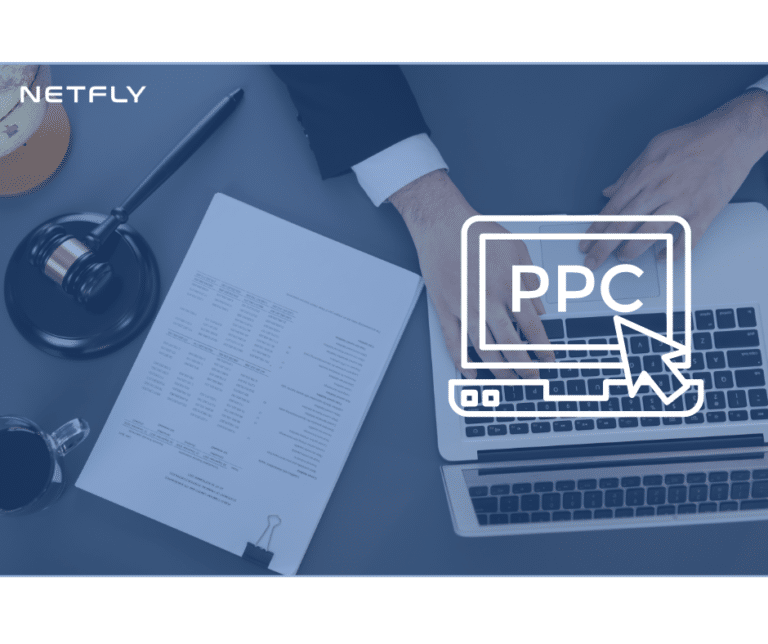Mastering brand positioning for law firms isn’t just about having a catchy tagline or an attractive logo. It’s about truly understanding what makes your firm unique and how you can communicate that to your target audience. You’ll need to pinpoint your strengths, identify your ideal clients, and craft messaging that speaks directly to their needs and concerns. But how do you go about gathering the insights necessary to create an effective brand strategy? That’s where the journey begins, and the key steps to achieving this are more straightforward than you might think. Let’s explore how you can elevate your firm’s brand presence.
Key Takeaways
- Identify and articulate your law firm’s unique value proposition to differentiate from competitors.
- Conduct thorough market research to understand and target your ideal client demographic and psychographic segments.
- Craft clear, engaging, and consistent messaging that highlights your firm’s strengths and unique services.
- Enhance your online presence with optimized content marketing, SEO strategies, and user-friendly website design.
- Leverage client testimonials and feedback to build trust and demonstrate credibility across all marketing platforms.
Understanding Your Unique Value
Understanding your unique value begins with identifying what sets your law firm apart from the competition. Recognize that your firm isn’t just another legal entity; it’s a brand with distinct qualities and offerings. To truly stand out, you must pinpoint the unique services you provide. Are you a firm known for innovative solutions in complex cases, or do you offer unparalleled expertise in a niche area of law? Highlighting these services will allow you to craft a narrative that resonates with your prospective clients.
Client differentiation is another critical aspect. It’s not enough to say you offer great legal services; you need to demonstrate how your approach uniquely benefits your clients. Maybe your firm has a track record of quicker case resolutions, or perhaps you provide personalized client consultations that large firms can’t match. By emphasizing these differentiators, you’ll attract clients who specifically value what you bring to the table.
Take a moment to evaluate your firm’s strengths. What do your clients consistently praise? Is it your firm’s attention to detail, your aggressive litigation tactics, or perhaps your compassionate client care? Once you’ve identified these strengths, integrate them into your brand messaging. Make sure every touchpoint—whether it’s your website, social media, or client communication—reflects these unique attributes.
Your unique value proposition shouldn’t just be a statement; it should be the foundation upon which your brand is built. By clearly defining what sets you apart and effectively communicating it, you establish that potential clients see the distinctive benefits of choosing your firm over others.
Identifying Target Audience
To effectively position your law firm, you must precisely identify the target audience that will benefit most from your unique services. Understanding who these individuals or businesses are is foundational for developing a brand strategy that resonates and drives engagement. Start by conducting thorough market research. This process involves gathering data on potential clients to understand their needs, pain points, and decision-making processes.
Demographic segmentation is vital in this endeavor. Break down your audience based on factors such as age, gender, income level, occupation, and geographical location. For instance, if your law firm specializes in estate planning, targeting older adults or high-net-worth individuals might be more effective. Similarly, if you focus on business law, your ideal clients could be entrepreneurs and small business owners.
Beyond demographics, consider psychographic segmentation. This involves understanding the values, interests, and lifestyles of your potential clients. Are they risk-averse, or do they seek aggressive legal representation? Do they value a personal touch, or are they more interested in efficiency and results? These insights will help you tailor your services and marketing efforts to appeal directly to your target audience.
Utilize surveys, focus groups, and client interviews to gather qualitative data. Online tools and analytics can provide quantitative insights, revealing trends and behaviors within your target market. By combining these approaches, you’ll create a detailed profile of your ideal client, allowing you to position your brand effectively.
Crafting a Compelling Message
Crafting a compelling message starts with distilling your law firm’s unique value proposition into clear, memorable language that resonates with your target audience. You need to articulate what sets your firm apart from the competition in a way that is both engaging and persuasive. This begins by understanding the core strengths and defining qualities of your practice.
Utilize storytelling techniques to convey your firm’s story. People are naturally drawn to narratives that are relatable and emotionally impactful. Describe a case where your firm made a significant difference, emphasizing the human element involved. This not only showcases your expertise but also connects with your audience on an emotional level.
Emotional appeals are important in crafting your message. Identify the feelings you want to evoke in your audience—whether it’s trust, relief, or confidence. Tailor your language and tone to evoke these emotions. For instance, if you handle family law, emphasize empathy and understanding. If your focus is corporate law, highlight reliability and professionalism.
Precision and clarity are essential. Avoid legal jargon that might alienate potential clients. Instead, use straightforward language that anyone can understand. This ensures your message is accessible and impactful.
Lastly, consistency across all messaging platforms reinforces your brand. Whether it’s your website, brochures, or client communications, maintaining a uniform voice strengthens your position in the minds of your audience.
Building a Strong Online Presence
A strong online presence is vital for law firms to connect with potential clients and establish authority in their practice areas. To achieve this, you need to focus on two critical components: content marketing and website optimization.
First, content marketing allows you to showcase your expertise and provide value to your audience. Regularly publishing high-quality articles, blog posts, and whitepapers can help you address common legal questions and offer insights on complex legal issues. This not only positions your firm as a thought leader but also improves your search engine rankings, making it easier for potential clients to find you. Make sure your content is relevant, engaging, and tailored to your target audience’s needs.
Next, let’s talk about website optimization. Your website is often the first point of contact potential clients have with your firm, so it needs to make a great impression. Make sure that your site is user-friendly, mobile-responsive, and fast-loading. These factors not only enhance the user experience but also positively influence your search engine rankings. Use clear, concise language and compelling visuals to communicate your firm’s unique value proposition. Don’t forget to include strong calls-to-action that guide visitors toward scheduling consultations or contacting your firm.
Incorporating SEO best practices is essential for website optimization. Use keywords strategically in your content, meta descriptions, and alt text for images. This improves your site’s visibility on search engines and helps attract more organic traffic.
Leveraging Client Testimonials
While optimizing your website and producing high-quality content are fundamental, leveraging client testimonials can greatly bolster your firm’s credibility and trustworthiness. Testimonials act as powerful endorsements, offering prospective clients a glimpse into the positive experiences of your existing clientele. To maximize the impact, you need a strategic approach to both gathering testimonials and displaying endorsements.
Start by actively seeking feedback from satisfied clients. Promptly ask for testimonials after a successful case resolution, while the positive experience is still fresh in their minds. Make the process easy for them; provide a simple form or a few guiding questions to streamline their responses. Make sure you obtain their permission to use their words publicly, safeguarding both your firm and your clients.
Once you’ve gathered testimonials, strategically display them across your marketing materials. Your website should prominently feature these endorsements on key pages, such as the homepage, service pages, and dedicated testimonial sections. Don’t hesitate to incorporate them into your email campaigns, newsletters, and brochures. Authentic testimonials can significantly enhance the persuasiveness of your promotional efforts.
Consider diversifying the format of your testimonials. While written testimonials are effective, video testimonials can offer a more personal and engaging touch. A well-produced video featuring a client speaking about their positive experience can forge a stronger emotional connection with potential clients.
Utilizing Social Media Channels
Harnessing social media channels can greatly enhance your law firm’s visibility and client engagement. By strategically utilizing platforms like LinkedIn, Facebook, and Twitter, you can showcase your expertise, share valuable content, and connect with potential clients. Your first step is to develop a robust content strategy that aligns with your brand’s voice and objectives. This means regularly posting insightful articles, case studies, and client success stories that highlight your firm’s strengths and expertise.
Don’t underestimate the power of visual content. Share infographics, short videos, and live sessions to keep your audience engaged. For instance, a brief video explaining a complex legal concept can position your firm as an educational resource. Consistency is key; make sure your posts are regular and your messaging is clear and concise.
Influencer partnerships can also play a pivotal role in amplifying your reach. Collaborate with respected figures in the legal industry or related fields to expand your audience. For example, a renowned legal analyst or a business consultant can endorse your services or share your content, lending credibility and attracting new clients. Make sure these partnerships align with your firm’s values and image, maintaining authenticity and trust.
Engage directly with your audience by responding to comments and messages promptly. This not only fosters a sense of community but also builds trust and loyalty. Use analytics tools to track your performance and understand what content resonates most with your audience. By continuously refining your approach, you can guarantee that your social media efforts are effective and impactful.
In essence, a well-executed social media strategy, bolstered by thoughtful content and strategic influencer partnerships, can greatly elevate your law firm’s brand positioning.
Monitoring Competitor Strategies
To stay ahead in the competitive legal landscape, it’s essential to keep a close eye on your competitors’ strategies. Understanding what other law firms are doing can provide vital insights that help refine your own approach. Competitor analysis isn’t just about knowing who your competitors are; it’s about thoroughly understanding their strengths and weaknesses, their market positioning, and their client engagement strategies.
Start by identifying your main competitors. Look at firms that are similar in size, practice areas, and target market. Once you’ve identified them, explore their marketing materials, social media presence, client reviews, and any other publicly available information. This will give you a clear picture of how they position themselves in the market and the kind of clients they attract.
Next, conduct strategic benchmarking. This process involves comparing your firm’s practices and performance metrics with those of your competitors. Pay attention to key areas like service offerings, pricing strategies, and client satisfaction levels. Are they offering something unique that you aren’t? Do they have a stronger social media presence or better client testimonials?
Additionally, keep an eye on their advertising and promotional activities. Are they investing in certain platforms or types of content that you’ve overlooked? What kind of messages are they sending out, and how is their audience responding?
Measuring Brand Success
Accurately measuring brand success is essential for understanding how effectively your law firm is resonating with its target audience. To accomplish this, you need a robust strategy that includes reliable brand metrics and insightful client surveys. These tools will help you gauge your firm’s market position and identify areas for improvement.
Start by tracking key brand metrics. Metrics like brand awareness, client loyalty, and market share offer quantifiable data that reflects your brand’s impact. Monitor your website traffic, social media engagement, and online reviews. These indicators can reveal how well your brand is performing and where adjustments might be needed.
Client surveys are another critical component. They provide direct feedback from your most valuable asset—your clients. Craft surveys to assess client satisfaction, service quality, and brand perception. Questions should be specific and actionable, asking clients to rate their experience and provide suggestions for improvement. This feedback is invaluable for making informed decisions about your brand strategy.
Don’t overlook Net Promoter Score (NPS), a powerful metric derived from client surveys. NPS measures client loyalty and their likelihood to recommend your firm to others. A high NPS indicates strong client satisfaction, while a low score can highlight areas needing immediate attention.
Analyzing these brand metrics and client survey results regularly will keep you informed about your brand’s health. Use this data to refine your marketing efforts, enhance client relations, and ultimately, strengthen your brand positioning. Remember, consistent measurement and adaptation are key to staying ahead in the competitive legal landscape. By doing so, you’ll guarantee your law firm remains relevant, respected, and successful.
Frequently Asked Questions
How Can Law Firms Maintain Brand Consistency Across All Marketing Channels?
You can maintain brand consistency across all marketing channels by establishing clear brand guidelines. Guarantee your visual identity is cohesive and regularly monitored. Consistent messaging and visuals strengthen your firm’s presence and credibility.
What Role Do Partnerships Play in Enhancing Brand Positioning for Law Firms?
Strategic alliances and industry collaborations greatly enhance your brand positioning. They expand your network, enhance credibility, and showcase your expertise. By partnering with reputable firms, you create a powerful image that attracts clients and stands out in the market.
How Can Law Firms Protect Their Brand Reputation During a Crisis?
In a crisis, you should prioritize crisis communication and reputation management. Act swiftly, be transparent, and control the narrative. This proactive approach guarantees you protect your brand’s reputation and maintain client trust.
What Are Effective Ways to Differentiate a Law Firm in a Saturated Market?
To stand out in a saturated market, offer unique services that competitors don’t provide. Highlight client testimonials to build trust and demonstrate your proven track record. This approach sets you apart and attracts potential clients.
How Can Law Firms Effectively Use Public Relations to Boost Brand Positioning?
You can boost brand positioning by using public relations effectively. Engage in media outreach to share your expertise and establish thought leadership. Consistently provide valuable insights to the media, showcasing your firm’s unique strengths and knowledge.
Conclusion
By mastering brand positioning, you’ll elevate your law firm above the competition. Focus on what makes you unique, understand your target audience, and communicate your value compellingly. Strengthen your online presence, leverage client testimonials, and stay active on social media. Keep an eye on competitors and measure your brand’s success regularly. With these strategies, you’ll create a powerful, resonant brand that attracts and retains clients, driving your firm’s growth and reputation.










